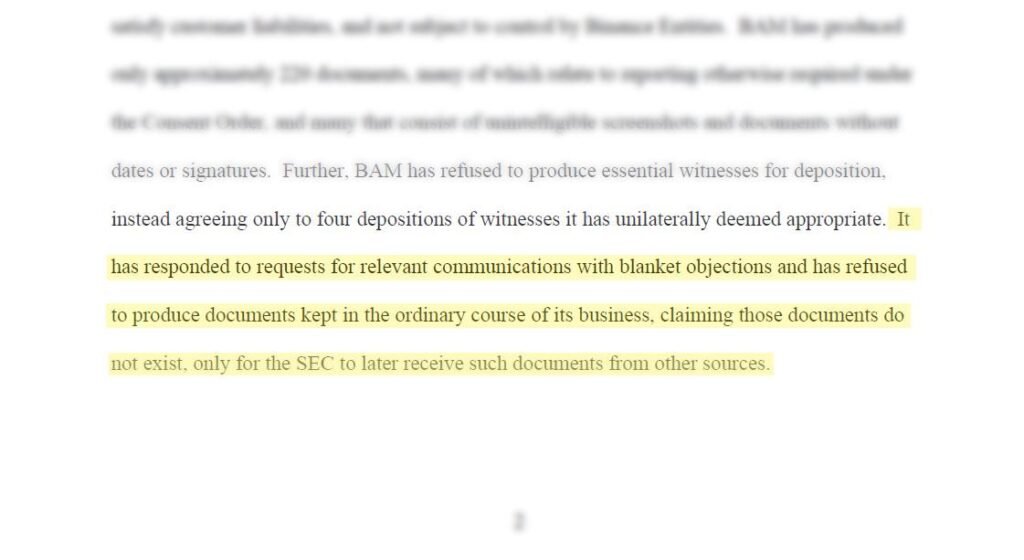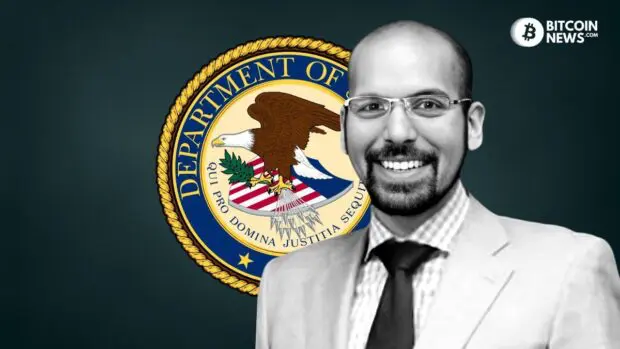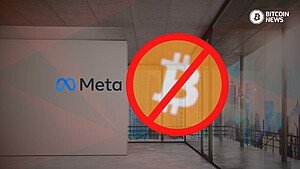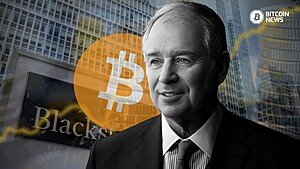The US Securities and Exchange Commission (SEC) faced a setback on Monday when a U.S. court declined their request for immediate access to inspect Binance.US’s software. This decision complicates the ongoing dispute between the SEC and the digital assets trading platform, which began in the second quarter of 2023 when the SEC accused Binance and its founder, Changpeng Zhao (CZ), of operating an unlicensed securities exchange.
The Request to Inspect Binance US
During a court hearing on September 18, the judge decided not to grant the SEC’s request to inspect Binance.US’s software. Interestingly, there was no request from the SEC to withdraw its demand for additional documents. This decision emphasizes the judge’s call for collaboration between the two parties.
In the second quarter of 2023, the SEC leveled accusations against Binance and its founder, Changpeng Zhao (CZ), alleging their operation of an unlicensed securities exchange. Subsequently, the SEC has been focused on ensuring that the assets of Binance.US customers remain within the United States.
Related reading : Bitcoin Plunges Below $26,000 As SEC Sues Binance
In June 2023, Binance and Binance.US reached an agreement with the SEC to safeguard the assets of U.S. customers within the United States until the resolution of the lawsuit initiated by the regulatory agency. This agreement included provisions for Binance.US to establish new digital asset wallets inaccessible to global exchange employees, provide supplementary information to the SEC, and adhere to an expedited discovery timetable.
SEC’s Frustration With Binance
However, since then, the SEC has expressed dissatisfaction, citing a lack of essential documents and an inability to verify Binance.US’s compliance with the proposed expedited discovery terms. Obtaining information from Binance.US, its global affiliate Binance Holdings Ltd., and its CEO Changpeng Zhao has also proven challenging for the SEC.
On Monday, the SEC sought permission from a federal magistrate judge to examine Binance.US’s technological infrastructure and compel the company to provide requested information. Instead of immediately ruling in favor of either party, the judge stressed the importance of cooperation, urging both sides to work together on their discovery requests.
The denial of immediate access to the SEC represents a procedural setback in one of the agency’s most high-profile digital asset cases. The SEC expressed frustration with Binance.US, citing the handover of inadequate and subpar documents and the availability of only three witnesses for depositions.
SEC has expressed extreme dissatisfaction regarding the other party’s cooperation in the case, stating that Binance has provided approximately 220 documents, a significant portion of which lacks dates or signatures and, in certain instances, are confusing incomprehensible screenshots. Furthermore, the company has exhibited hesitance in producing essential witnesses for deposition, agreeing to just four depositions of individuals they have personally chosen as suitable.
SEC added:
“It has responded to requests for relevant communications with blanket objections and has refused to produce documents kept in the ordinary course of its business, claiming those documents do not exist, only for the SEC to later receive such documents from other sources.”

Concerns of SEC and Binance US
The SEC’s primary concerns revolve around Binance.US’s ability to secure customer funds and its relationship with its service provider, Ceffu. Binance.US criticized the SEC for not presenting evidence of mishandled customer funds and characterized the SEC’s discovery requests as “unduly burdensome” and “excessive.”
Related reading : Regulatory “Siege” Underway For U.S. Exchanges — Warns Ex-SEC Official
During the latest hearing, the judge requested additional details from Binance.US about its custody solution, expressing uncertainty about whether the company had full control over its assets.
The SEC’s allegations against Binance and Binance.US suggest that these entities, initially portrayed as distinct entities for American clients, were not truly independent and violated several US securities regulations. The regulatory body now argues that a thorough inspection of Binance.US’s technology is necessary to uncover potential connections with the global exchange.
US Court’s Ruling
Judge Faruqui’s ruling represents a partial setback for the SEC in its quest for a comprehensive examination of Binance.US. The judge has rejected the SEC’s request for immediate access to Binance.US’s software and called for more precise discovery requests and a broader range of witnesses to be involved in the case. The dispute between the SEC and Binance.US continues, with the judge emphasizing the importance of cooperation in resolving the matter.










